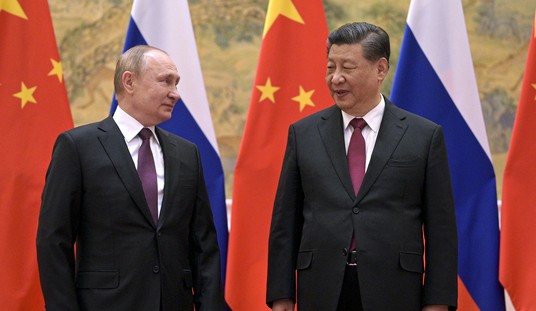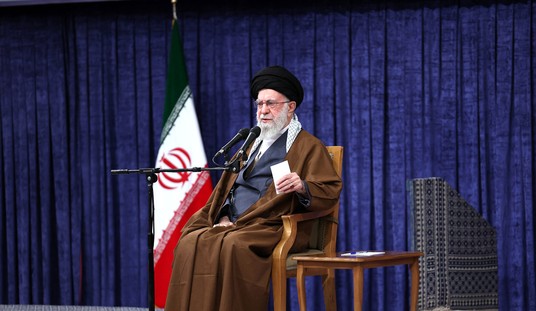On October 3, 2015, Muhannad Halabi, a 19-year-old Palestinian, perpetrated a stabbing and shooting attack on Israelis in the Old City of Jerusalem. He killed two men—Nehemiah Levi, 41, and Aharon Banita, 22. Banita’s wife was also seriously wounded, and their two-year-old child was lightly wounded. The attack ended with Halabi being shot dead by policemen.
When the wife, Adele Banita, injured and bleeding, begged for help from surrounding Palestinian shopkeepers, they “just spat at me…laughed and cursed…and told [me] to ‘drop dead.’…”
Since that time, the memory of Muhannad Halabi, the attacker, has undergone a process not far from the beatification of a saint:
- Just hours after the attack, the first Palestinian baby was named after Halabi. The mother of the newborn Muhannad Halabi called the mother of the deceased Muhannad Halabi, and “the two mothers cried from joy….” Palestinian news outlets dubbed Halabi a “hero of our people” who was “murdered by the occupation army.”
- On October 8, the Fatah movement—which runs the Palestinian Authority and is seen in Western eyes as moderate—brought soil from the Al-Aqsa Mosque on Jerusalem’s Temple Mount to Halabi’s grave “so that the dead body of Martyr Muhannad Halabi can hug the soil for which he died a Martyr.” The day before the attack, Halabi had written on his Facebook page: “Wake up from your slumber and save al-Aqsa. Let the revolution erupt.”
- On October 9, Halabi’s parents celebrated the 19 year old’s death. The father said: “My son is an offering to the Al-Aqsa [Mosque]”; the mother said: “O mother of Martyr, let out cries of joy.”
- On October 10, the Palestinian Bar Association posthumously awarded Halabi an honorary law degree and said it would “name its swearing-in ceremony for the next class of lawyers after Martyr Muhannad Halabi.”
- On October 19, Sultan Abu al-Einen, an adviser to Palestinian Authority chairman Mahmoud Abbas, mocked Israeli terror victims on his Facebook page and glorified Halabi as “defenseless…not armed with anything but his right to his homeland and his Palestinian will….”
- It now also turns out that a street has been named after Halabi. The municipality where he lived announced that it was done “to honor Halabi, who carried out a stabbing and shooting operation…against settlers in the Old City of occupied Jerusalem.” “Settlers” is a generic Palestinian term for Israelis, and in this case—as in many others where it includes children—includes the two-year-old child who was injured.
With the Palestinian stabbing, shooting, and ramming attacks continuing, Secretary of State John Kerry met with Prime Minister Benjamin Netanyahu in Berlin, and with Abbas and Jordan’s King Abdullah in Amman, in an effort to tamp down the storm.
The upshot was that Netanyahu publicly avowed that Israel had no intentions of changing the status quo on the Temple Mount—whereby only Muslims can pray there and others can only visit at limited, specified times. Libelous claims about nefarious Israeli designs on the mount had been fueling the Palestinian terror. No public avowal, however, was required of Abbas, who has recently glorified terrorism and called Jews “filthy” desecrators.
Despite Netanyahu’s announcement, an Israeli security official sees little chance that the terror wave will subside at this point. If Kerry’s diplomatic efforts on the Israeli-Palestinian front, as in the past, are a blind alley, the sacralization of the terrorist Muhannad Halabi—a representative case among thousands—suggests why that is the case.
A rational U.S. policy would take some realities into account:
1. Palestinian terror rises and falls in spasms, and the spasms have gotten much worse since Israeli-Palestinian-U.S. diplomatic efforts began in 1993. Palestinian hatred of Israel is linked to the wider Muslim Arab culture of hatred of the non-Muslim or non-Arab “other”; the Jews of Israel qualify as both—as well as being Jews, a people cursed by Islamic tradition. The Palestinian mindset shows no sign of being able to change unless and until—if it ever happens—the wider culture undergoes a reform.
2. The United States should stop seeing itself as an advocate or ally of the Palestinians, who are suffused with Middle Eastern anti-American, anti-Western, anti-Christian, and anti-Semitic passions and have nothing to offer in terms of promoting U.S. interests.
3. Israel essentially faces the same dilemma in the West Bank that it faced in Gaza: to rule over a hate-ridden population, or to give it autonomy, lose security control, and risk being subjected to its attacks. This is an Israeli problem that Israel has to wrestle with. The role of the U.S. as an ally is to offer support, respect Israel’s decision-making autonomy, and not try to impose clumsy “solutions” that show ignorance of the region and draw equivalencies—if not worse—between Israel and its attackers.
And, finally, while Israeli-Palestinian violence may still be a media favorite, it is a good deal less significant than the real threats—the growing power of ISIS, Iran’s nuclear progress—that the region poses. The Palestinians should cease being an obsessive issue; they are not only of limited significance but hardly deserve it.









Join the conversation as a VIP Member